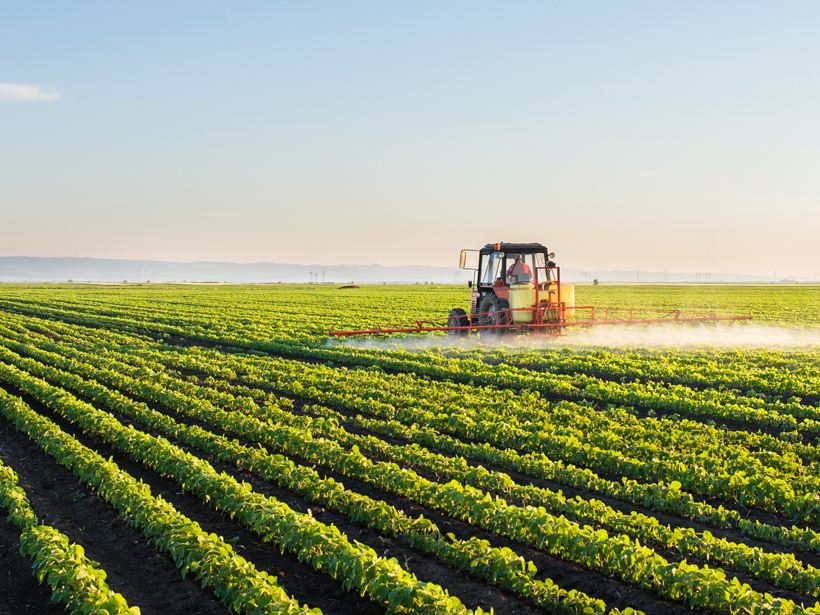Introduction:
The ancient African proverb, “He who does not cultivate his field will die of hunger,” holds a profound relevance in today’s context, particularly for Africa. The proverb paints a vivid picture of Africa’s untapped agricultural potential. Despite being the home of over 1.3 billion people, where agriculture forms the backbone of the economy, providing employment to over 60% of the population and accounting for 20% of the continent’s GDP, this crucial sector is still underexplored and underutilized.
Africa, rich with abundant arable land and a growing workforce, paradoxically grapples with high dependence on food imports and a startling youth unemployment rate. This unveils a conundrum: although the continent boasts of an agricultural sector that could theoretically reach an estimated $1 trillion by 2030 through the production, processing, and distribution of agricultural products, the reality remains starkly contrasting.
More than half the population in Sub-Saharan Africa are smallholder farmers, making the sector a pivotal driver for economic and social change. However, the true potential of this sector is yet to be fully realized, presenting a compelling case for exploration and transformation. In this article, we venture into the current landscape of African agriculture, illuminating the issues of food import dependency, the utilization of arable land, and youth unemployment. Further, we propose immediate and long-term solutions that can unlock the immense agricultural opportunities lying dormant in Africa’s soil, aiming to transform this sector into a thriving economic growth and development powerhouse.
Current State of Agriculture:
Abundant Arable Land: Africa, the world’s second-largest continent, holds an agricultural promise like no other, with nearly 60% of the world’s uncultivated arable land. This vast expanse of fertile land presents an unrivalled opportunity for the continent to significantly boost its agricultural output, alleviate food security concerns, and drive economic prosperity. Yet, this vastness lies dormant, underutilized due to various constraints. For instance, in the Democratic Republic of Congo, a mere 10% of 80 million hectares of cultivable land is currently under cultivation.
The story is similar across various African countries exemplifying the paradox of abundant arable land yet unmet food demand and unrealized economic potential. Unlocking the full potential of Africa’s arable land is a complex endeavor requiring concerted efforts from multiple stakeholders. It necessitates strategic land reforms, increased investment in agri-infrastructure, and a commitment to capacity-building for farmers. The underutilization of Africa’s abundant arable land is not just a missed opportunity but also a challenge to its food security and economic growth. Transforming this latent resource into a dynamic driver of development is an imperative that calls for action from all stakeholders.
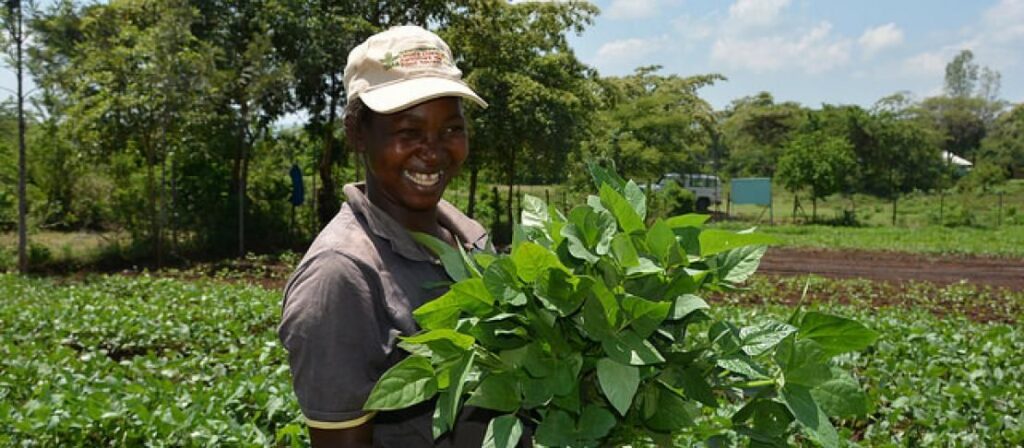
Import Dependency and Food Security: Africa, rich in fertile land and promising agricultural opportunities, still struggles to feed its burgeoning population. Despite its vast potential, the continent leans heavily on imports from countries like Russia, Ukraine, China, and Thailand to meet its food needs, spending billions of dollars annually. According to a “Feed Africa” Report by the African Development Bank Group, Africa spends nearly $65 billion on food imports alone and “may spend even more in subsequent and forthcoming years.”
Today, over 50 million people in Africa require emergency food aid each year, making it the continent most reliant on food aid. In 2021 alone, about 278 million Africans faced hunger. This number has risen, with 346 million people now affected by a food crisis, according to the Food and Agriculture Organization (FAO) and the African Union (AU). Take Nigeria, for example. Despite its potential to produce large amounts of wheat, it spends over $1.5 billion yearly on wheat imports. This reflects the underutilization of Africa’s agricultural resources and import overdependence.
Security Challenges: The security crisis in Africa is a significant obstacle to the growth and stability of the agricultural sector. Burkina Faso, a leading of cotton and sorghum, is an example of how rising violence, including terrorism and inter-communal conflict, is forcing farmers to abandon their fields and discouraging much-needed investment in agriculture. Thousands of farmers have fled their lands in Burkina Faso due to frequent violent attacks, leading to a steep drop in crop production, weakening the economy, and threatening food security. This mass exodus significantly impacts the country’s workforce, as agriculture employs most of the population.
The security challenges facing the agricultural sector in Africa necessitate urgent action from governments and international bodies to secure a peaceful environment for agricultural activities to thrive.
Youth Unemployment Crisis: One of the most pressing challenges facing Africa today is the high rate of youth unemployment. According to the International Labour Organization (ILO), Africa’s youth unemployment rate is around 12.7%, with isolated cases of 40 – 50%. Of Africa’s nearly 420 million (which is expected to double to over 830 million by 2050) youth aged 15 – 35, one-third are unemployed and discouraged, another one-third are vulnerably employed, and only one in six is in wage employment. More frightening is almost 263 million young people will lack an economic state in the system by 2025. These are contained in a “Jobs for Youth in Africa” Report by the African Development Bank Group.
Ghana, the gateway to West Africa, is an interesting case study. Despite the strong performance of the Ghanaian economy in the past decade, job creation and improvements in employment conditions have not kept pace, particularly for the growing youth population. With agriculture accounting for approximately 20% of its GDP, Ghana grapples with a youth unemployment rate of about 12%. The rising rate of youth unemployment in Africa demands urgent attention. The problem is not just unemployment but underemployment, the combined effects of which pose major security threats.
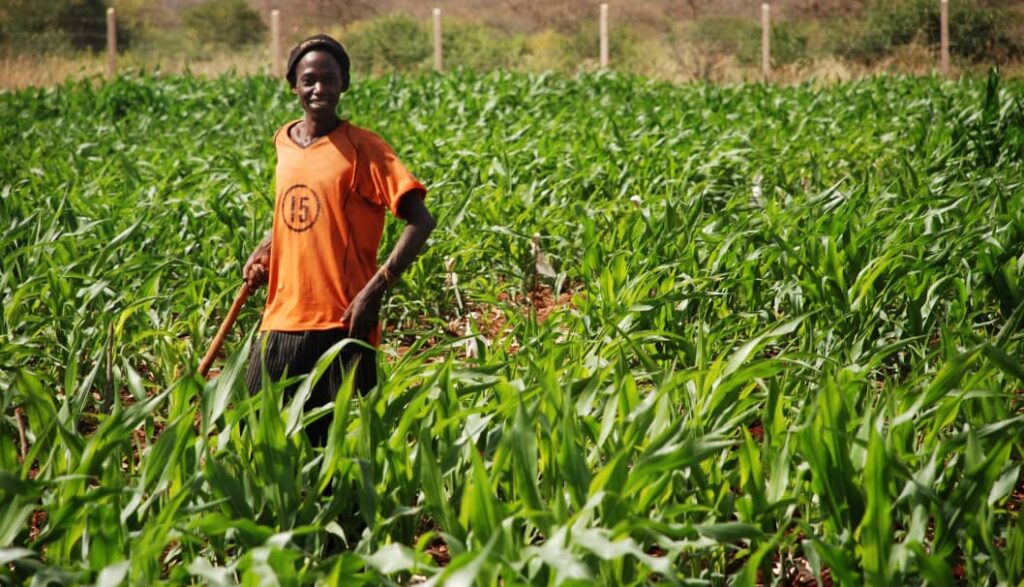
Agriculture has the potential to serve as a catalyst for job creation, rural development, and poverty reduction. Regrettably, farming is often associated with a negative perception – seen as a symbol of poverty rather than an opportunity for wealth creation. Coupled with this, limited access to capital, inadequate training opportunities, and insufficient governmental commitment have contributed to agriculture’s underutilization as a generator of employment. The “Jobs for Youth in Africa” Report projects industrialization and ICT to create 14 million and 2 million jobs in the next 10 and 5 years. Agriculture has the potential to create 41 million jobs over the next decade.
Short-term Solutions:
• Investment in agricultural infrastructure: Governments and their foreign donors should prioritize the development of rural infrastructure, including roads, irrigation systems, and storage facilities. This will enhance farmers’ access to markets and reduce post-harvest losses. Helping build efficient cooperatives, providing mutual support, knowledge sharing, and pooling production and marketing resources can also contribute to productivity gains.
• Access to finance and credit: Governments should establish agricultural financing mechanisms tailored to the needs of smallholder farmers. This includes microcredit programs, agricultural insurance schemes, and improved access to savings and loan facilities.
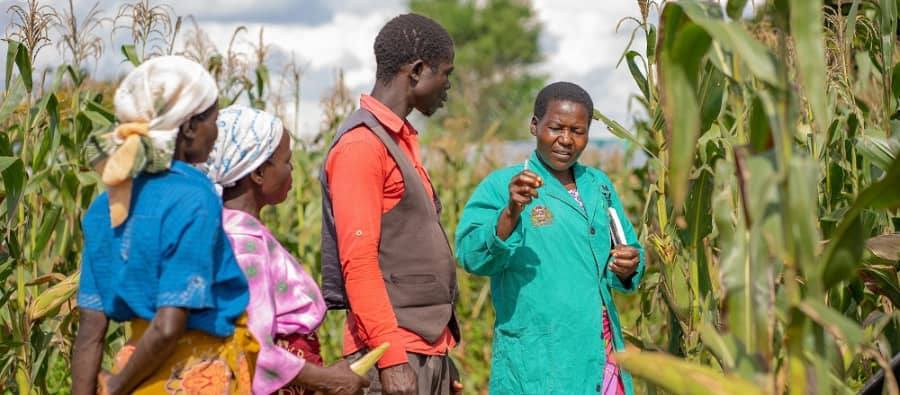
• Entrepreneurship and vocational training: Encouraging entrepreneurship and providing vocational training for young people in agricultural practices, agribusiness management, and modern farming techniques will help attract more youth to the sector and equip them with the necessary skills for success. Also, the continent can replicate and scale up South Africa’s initiative that offers work placements, basic monthly wages and training in farming and its related skills to the youth.
Investment in Security: Governments must prioritize law enforcement and invest in security, especially in farming zones, to ensure farmers carry out their activities safely. Other ways to do this include supporting community-based security initiatives and mediating local conflicts. It is only when farmers and workers of agricultural-related factories feel safe and investors are confident their investments will not be stifled by unforeseen security crises that they can make significant investments into the continent’s agricultural sector.
Long-term Solutions:
• Technological innovation and research: Investing in research and development of agricultural technologies and mechanization, such as precision farming, drone technology, irrigation systems, and climate-resilient crops or creating seeds suited for the local environment, will boost productivity and sustainability in African agriculture.
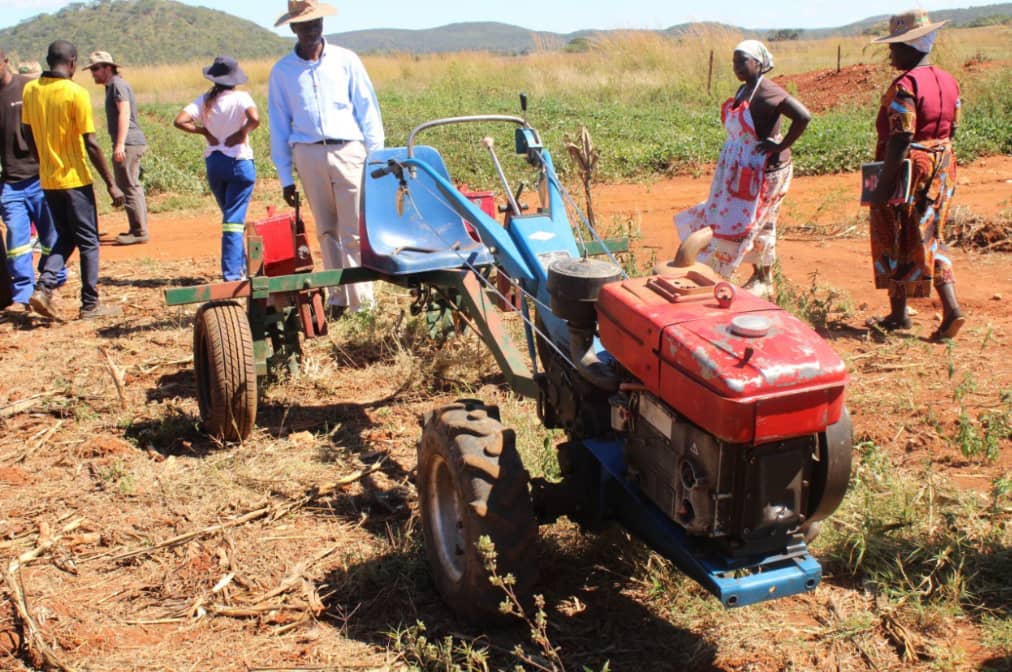
• Policy reforms: Rather than creating shallow and selfish policies to score short-term political points, governments should implement favourable agricultural policies, including land tenure reforms, agricultural subsidies, and incentives for agribusiness investments. Import duties or taxes on agricultural machinery, fertilizers, chemicals and seedlings should be significantly reduced or scraped off completely.
Africa’s food import is estimated to reach $110 billion by 2025. Governments should, therefore, not only intentionally limit the importation of certain stable foods and poultry products and strategically increase local production instead, but they should create a system to boost the exportation of targeted food products. These policies will create an enabling environment for private sector participation and attract domestic and foreign investments in the agricultural sector. The African Continental Free Trade Area presents another perfect opportunity to the continent to promote intra trading activities in the agricultural sector, creating larger markets for African farmers and agribusinesses.
• Education and awareness: Because of the negative stereotype associated with farming especially, enhancing education programs to incorporate agriculture-related subjects and promoting awareness campaigns about the potential benefits and opportunities in the agricultural sector will help change societal perceptions and encourage more young people to pursue agriculture as a viable career path.
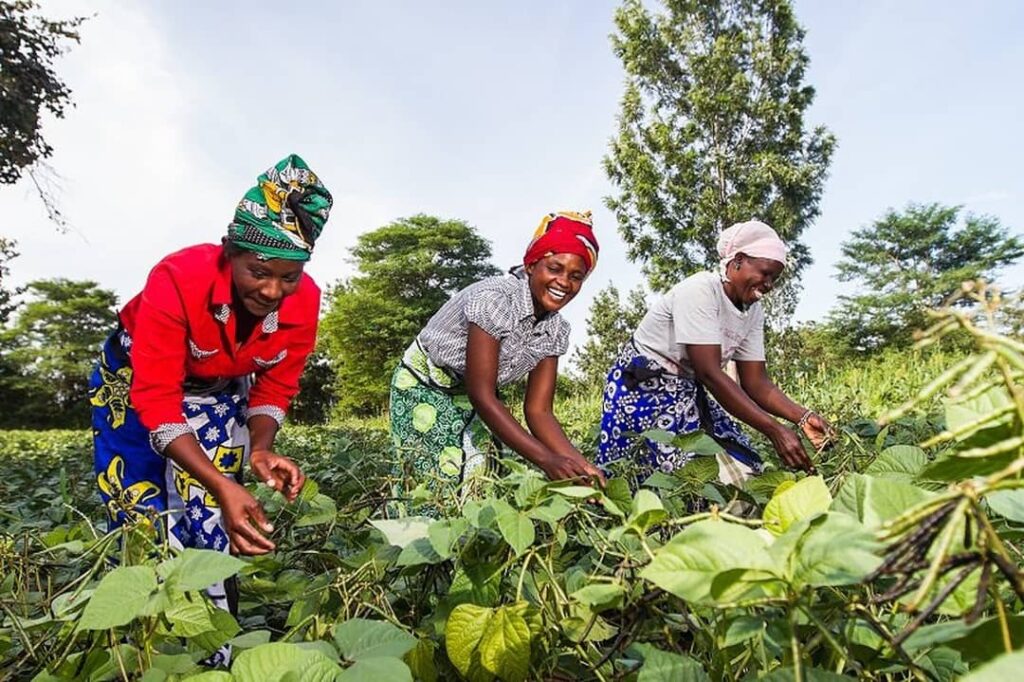
Conclusion: Agriculture holds immense potential to drive economic growth, food security, and employment opportunities in Africa. The continent can transform this neglected goldmine into a thriving sector by addressing the challenges of import dependency, underutilized arable land, and high youth unemployment. With strategic investments, supportive policies, and targeted interventions, Africa can harness its agricultural resources, empower its youth, and pave the way for sustainable development and prosperity.
Agriculture is not only the future of Africa – it presents an opportunity for wealth creation and total independence of the continent and creates a roadmap to development, employment, as well as empowerment of the youth. The time to prioritize agriculture is now.
CADMA
(Centre for Agribusiness Development and Mechanisation in Africa)
Email: cadmaagrisolutions@gmail.com
Ghana


